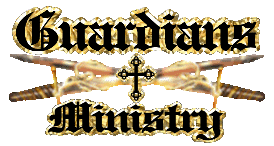Spreading God's Love Thru Prayer
Greek: pascha (GSN-3957), the Passover, as translated in 26 other places
(Matthew 26:2-19; Mark 14:1-16; Luke 2:41; Luke 22:1-15; John 2:13,23; John 6:4;
John 11:55; John 12:1; John 13:1; John 18:28,39; John 19:14; 2 Cor. 5:7; Hebrews
11:28). This is an unfortunate and absurd translation, as Easter was a pagan festival
observed long before Christ. It is not a Christian name, but is derived from Ishtar, one
of the Babylonian titles of an idol goddess, the Queen of Heaven. The Saxon goddess
Eastre is the same as the Astarte, the Syrian Venus, called Ashtoreth in the Old
Testament. It was the worship of this woman by Israel that was such an abomination to
God (1 Samuel 7:3; 1 Kings 11:5,33; 2 Kings 23:13; Jeremiah 7:18; Jeremiah 44:18).
Round cakes, imprinted with the sign of the cross were made at this festival, the sign
being, in the Babylonian mysteries, a sign of life. Easter eggs which play a great part
in this day's celebration were common in all heathen nations. The fable of the egg
declares that "an egg of wondrous size fell from heaven into the river Euphrates; the
fish rolled it to the bank, where doves settled upon it and hatched it; and out came
Astarte, or Ishtar, the goddess of Easter." Easter, Christmas, Lady Day, Lent, and other
Babylonian festivals were all borrowed from this religion and were all observed
centuries before Christ. None of them have any relationship to Christ or Christianity.
Views: 50
Comment
-
Comment by Juana Lee on March 28, 2013 at 6:34pm
-
Thank you , I could not put it in the words that I needed, and the Lord through you did.
© 2026 Created by Guardian.
Powered by
![]()




 Guardians Prayer Warriors if you would like to go to our Facebook page please click the buttons. If you would like to open up a Guardians Prayer Warriors group on a different site please contact Guardians Ministry so that we may put the name of your site on the page and you can use Guardians Prayer Warrior tags.
Guardians Prayer Warriors if you would like to go to our Facebook page please click the buttons. If you would like to open up a Guardians Prayer Warriors group on a different site please contact Guardians Ministry so that we may put the name of your site on the page and you can use Guardians Prayer Warrior tags.







You need to be a member of Guardians Prayer Warriors to add comments!
Join Guardians Prayer Warriors